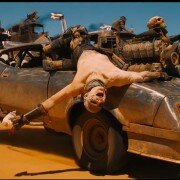What We’re Reading: The World Without Us
Chris: Imagine if humans disappeared tomorrow. What would we leave behind? How long would it last? These questions are at the heart of The World Without Us by Alan Weisman. It’s a book I mentioned in a list of Cool Things a few months ago, but I wanted to explore it further here.
The setup reads like a familiar post-apocalyptic story. Perhaps a pandemic has wiped out only humanity, or aliens have arrived and taken particular interest in us for their zoological studies. The end-of-world is such a common genre now we might well be reaching peak-apocalypse. This is why The World Without Us is worth reading.
Despite its imaginative premise, the book might be called ‘speculative non-fiction’. Weisman tours an impressive range of humanity’s efforts at construction (and in some cases, destruction) and explores how they would cope if they were suddenly abandoned by their human caretakers.
To make this alien concept real, Weisman starts close to home. It turns out your house would not last particularly long, with water most likely seeping in over time through the flashing in your roof. Plants – especially introduced creeper species – would make fairly quick work of mortar, too. Once water and plants get in, it’s all over. You’d be lucky if it lasted more than a hundred years.
The book then broadens its scope, looking at everything from great dams, ancient pyramids and even the holes left behind by years of mineral extraction. Other discussions include: how quickly Manhattan would sink (the subways alone would flood within days); what would happen to the thousands of untended nuclear bombs and power plants; human probes already well beyond our solar system, and the messages we placed on them; and how the Panama Canal would fill with silt, reconnecting two continents. All of this doom and gloom, and then some.
Interestingly, even in death we would kill off species. Innumerable cockroaches would die from exposure to cold, after having thrived in the warmth of our cities. And a year after our disappearance, human head and body lice would be completely extinct.
It’s not the grand developments we imagine to represent our human progress that will remain – the skyscrapers, the works of art, the wonders of technology. It’s the things we tend to think least about that will leave the most enduring mark.
Small plastic pellets, or nurdles, used as raw materials for the production of other, bigger, plastics make their way into the oceans every day. Many exfoliating scrubs use micro-plastics. They’re literally designed to be washed down the drain. In sea water these nurdles eventually break down into smaller, brittle pieces. But they don’t disappear quickly. Even if production ceased tomorrow, fish will be eating plastic particles for thousands of years to come.
Meanwhile, the half-million tonne of depleted Uranium-238 in the US will be around in 4-5 billion years, when the sun expands and engulfs the earth. Yet our most enduring contribution will be the radio waves we emit each day, which may continue to bounce around the universe for untold eons.
It’s not all doom and gloom in this book. The World Without Us also speculates on what species might survive and even thrive. Today, in Fukushima’s exclusion zone, plants continue to grow and in the absence of humans, animals continue on in similar exclusion zones around the world. The long-term effect of exposure to radiation on these animals is an ongoing question. But there is an undercurrent point to this. In the words of Ian Malcolm – chaos theorist – life finds a way.
That’s perhaps the most satisfying aspect of this book. It walks a careful mid-ground between the pitfalls on either side: a revelry in the gloomy acknowledgement of the damage we’ve already done (and, despite the premise of the book, will continue to do) on one side, and a sermon on the sacredness of Mother Earth on the other. The middle path is a peculiar one that leaves the reader feeling both sadness and hope. The message is clear. We are not the centre of the earth; it will be here long after the conditions we’ve created destroy us.
But even if you’re not especially interested in the fate of the environment, there’s another reason to read this book. It’s essential research for all those would-be apocalyptic writers. What would actually happen if society were to crumble, even if a desperate few were left? All those zombies might plausibly survive the nuclear winter resulting from the hundreds of incidents occurring around the world with every power plant melting down, but I doubt Rick Grimes would make it far.






